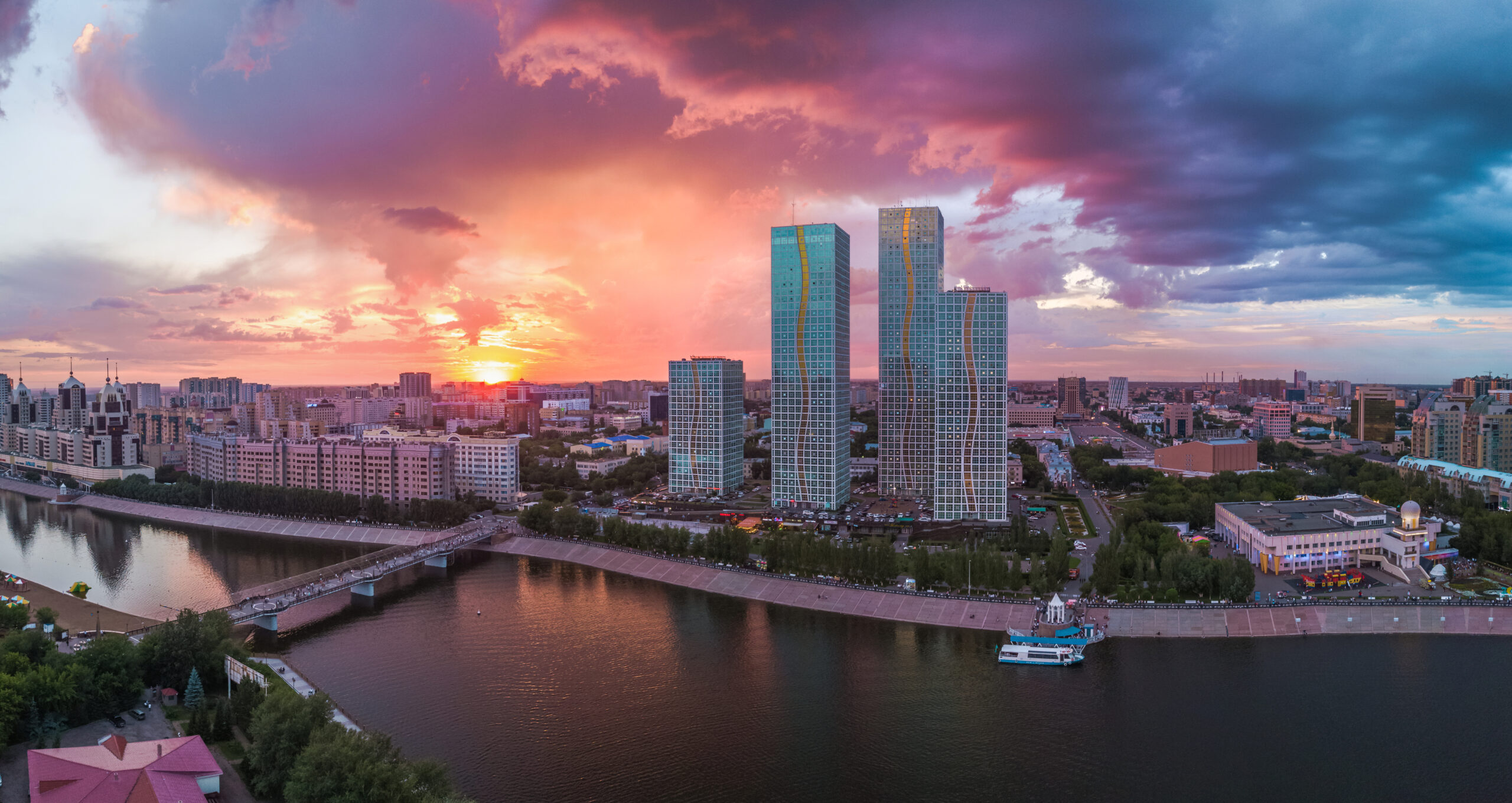Roman Vassilenko, Kazakhstan’s deputy foreign minister, captured the essence of his country’s foreign policy at a press conference in Astana on October 23: “Kazakhstan has positioned itself as a unifying mediator between East and West.”

Photo credit: evgenykz/Shutterstock.
His words evinced his country’s pragmatic approach to foreign affairs and the precedence it gives to diplomacy even in our gravely troubled times. As such, they were devoid of the ideological cant that so often marks pronouncements from Brussels and other centers of global influence.

Javier M. Piedra.
President Kassym-Jomart Tokayev, Vassilenko said, “has highlighted the troubling state of current geopolitical confrontations and eroding international principles. He has urged nations to join Kazakhstan in reaffirming their commitment to diplomatic solutions grounded in the United Nations Charter and universally recognized [norms of] international law.”
He reiterated Kazakhstan’s view that international engagement is not a zero-sum game. He does not consider diplomatic give-and-take to be a sign of weakness, nor does he equate negotiation with a loss of standing in the international order.
In this connection, Vassilenko stated that “Kazakhstan maintains good relations with all our neighbors, including Russia and China, as well as with the EU and the United States.” He added that “this balanced approach to international relations would bring a valuable, multifaceted perspective to the UN Security Council,” an allusion to Astana’s support for expanding the membership of the UN’s supreme decision-making body.
Expanding on this theme, Vassilenko noted that President Tokayev continues to “call for a comprehensive reform of the Security Council” so that “the middle powers and all developing countries have a voice at the highest level of UN decision-making.”
The Kazakh leadership believes expanding the membership of the UNSC will help it get beyond gridlock and stasis (a result of ideology and great power ambition), and, ultimately, serve the interests of developing and low-income countries.
Be that as it may, Vassilenko said, “Kazakhstan has consistently demonstrated a staunch commitment to multilateralism,” an approach to international relations that gives smaller nations a greater voice in decision-making, particularly at times of heightened international tensions and irresponsible statecraft.
Vassilenko gave the impression that Kazakhstan would be willing, if asked, to use Astana’s good offices to bring states together for the sake of peace and reconciliation.
Kazakhstan’s approach to engagement (as evidenced in its annual Astana International Forum and the biennial Congress of Leaders of World and Traditional Religions) springs from Central Asia’s tradition of optimism and hospitality, and for the need for win-win outcomes when dealing with larger, more powerful neighbors.
Eurasian integration
Nearly half of Vassilenko’s press conference focused on Eurasian connectivity and integration, which continues to move forward despite the efforts of some to chuck a monkey-wrench into the process. He noted that Kazakhstan is a pivotal transport and logistics hub in the heart of Eurasia.
In this regard, he said Astana is placing “significant emphasis on investments in infrastructure and logistics. Around 80% of the land-based cargo traffic taking place between Europe and Asia passes through Kazakhstan.
“The upgrading and fine-tuning of the Trans-Caspian International Transport Route, more commonly known as the Middle Corridor, is thus among the key priorities of Kazakhstan, together with that of the North-South corridor, including the Kazakhstan-Turkmenistan-Iran railway.
“In the same vein, we are stepping up our efforts to facilitate the transit of goods through the construction of the Dostyk-Moiynty, Bakhty-Ayagoz, and Darbaza-Maktaaral railroads.”
Vassilenko said Kazakhstan welcomes investments from the European Union, the US, Russia and China, the other countries of the region and international financial institutions (IFIs) to achieve its objectives and advance its national interests.
He said the sooner infrastructure projects are started, the better: “As I have jokingly said to my European counterparts, we have [in our hands] this European Bank for Reconstruction and Development study [that took] one year to prepare, then we have like seven or eight months for the European Union to prepare the investors’ forum [in Brussels] and, then, who knows how much time from that moment it will take to implement these projects?
“So, as I say, well, by the time we are done with all that, our other neighbors will have built three railways already.”
Investors, take note: Vassilenko says “Kazakhstan is looking forward to the investors forum that will take in January 2024 in Brussels, which will have as its goal identifying specific projects and partnerships between European companies, IFIs such as EBRD and the European Investment Bank, and Central Asian countries.”
Astana is eager to get moving. Vassilenko prodded his country’s partners: “We need to move faster than we are moving now.”
If the West doesn’t up its game and show greater interest in high-cost infrastructure projects in Kazakhstan, that is, provide affordable long-term finance expeditiously, then no one should be surprised if China, Russia or India wins more contracts and deepens partnerships as Astana pursues its pragmatic, multi-dimensional foreign policy.
The author is Javier M Piedra, a financial consultant, specialist in international development and former deputy assistant administrator for South and Central Asia at USAID.
The article was originally published in Asia Times.

